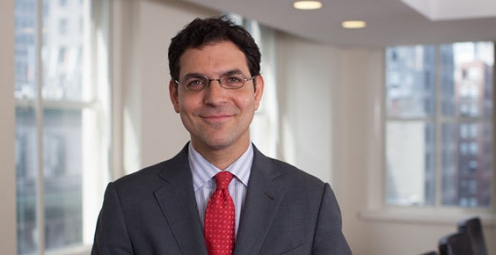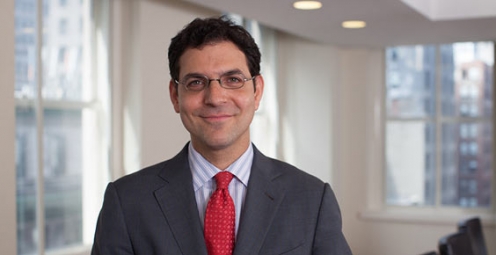
The recent proliferation of cryptocurrencies, digital tokens and initial coin offerings (ICOs), facilitated by advances in blockchain and other distributed ledger technologies, has engendered substantial optimism among segments of the investing public. Some envision that these developments will transform financial markets and systems, and hope to benefit from these changes through early investments in digital assets. The combination of widespread hype, technical jargon and lack of regulation, however, has fueled a rise of opportunists seeking to take advantage of unsophisticated investors entranced by the well-publicized prospect of exponential returns, with numerous instances of fraud already having come to light.
In the absence of a domestic regulatory authority with clearly established jurisdiction, the U.S. Securities and Exchange Commission (the SEC) has staked out a claim to regulate at least some cryptocurrencies, digital tokens and digital coins, on the basis that they constitute "securities" over which the SEC is vested with broad statutory authority. The SEC has repeatedly asserted its ability to exercise jurisdiction over these cryptocurrencies, digital tokens and digital coins, and has done so in enforcement actions against token issuers, broker-dealers and trading platforms. Several courts have agreed with this expansive interpretation of the SEC's statutory authority. See, e.g., United States v. Zaslavski, No. 17-cr-647 (E.D.N.Y. Sept. 11, 2018) (upholding legal sufficiency of indictment predicated on alleged misrepresentations in connection with virtual currency investment schemes and ICOs); SEC v. Shavers, No. 13-cv-416 (E.D. Tex. Aug. 26, 2014) (holding that Bitcoin-related investments constituted securities).
Last week, however, a federal judge in California issued a decision that may hinder the SEC's ability to regulate the issuance and sale of digital token and coin assets. In SEC v. Blockvest, LLC, No. 18-cv-2287 (S.D. Cal., filed Oct. 3, 2018), Judge Gonzalo P. Curiel denied the SEC's application to preliminarily enjoin Blockvest and its principal Reginald Buddy Ringgold, III from moving forward with their plan to launch an ICO of certain digital tokens called "BLVs" (though Blockvest has voluntarily stood down).
The SEC charged Blockvest with making a series of misrepresentations including that Blockvest was registered with the SEC, the Commodities Futures Trading Commission and a fictitious agency called the "Blockchain Exchange Commission," for which Blockvest invented a physical address (which happened to coincide with that of the SEC). Blockvest has argued that the SEC lacks jurisdiction to regulate its conduct, because Blockvest's sales of BLVs have been to only a limited number of individuals, all of whom have been testers of the platform, thereby rendering BLVs not "securities."
Applying the Supreme Court's seminal decision in SEC v. W.J. Howey Co., 328 U.S. 293 (1946), as interpreted by the Ninth Circuit, the court agreed with Blockvest, finding that, under the circumstances, the SEC had failed to prove that the BLVs met the tripartite prerequisites of "(1) an investment of money (2) in a common enterprise (3) with an expectation of profits produced by the efforts of others." In particular, the court credited the defendants' evidence that Blockvest's participants had not been induced to purchase BLVs by the expectation of profits, but rather were participating in the platform for the purpose of testing it. The court did not definitively rule whether the BLV tokens were securities, deferring that issue for another day.
The significance of Judge Curiel's decision is not yet clear, but there are reasons to believe that its impact will be modest. As a district court decision, the opinion has limited precedential value outside of the Southern District of California. Further, the facts of Blockvest are extremely narrow, with no clear evidence that anyone other than a tester of the platform was induced to purchase a digital asset from Blockvest. On the other hand, Judge Curiel's decision emphasizes the fact-intensive nature of the question of whether digital assets constitute securities, and may furnish arguments for other participants in this space seeking to avoid regulation by the SEC.
The SEC's jurisdiction to regulate cryptocurrencies, digital tokens and ICOs nevertheless remains an open and contested issue-one that warrants close attention in the months to come.
https://www.kkwc.com/attorney/marc-r-rosen/
In the absence of a domestic regulatory authority with clearly established jurisdiction, the U.S. Securities and Exchange Commission (the SEC) has staked out a claim to regulate at least some cryptocurrencies, digital tokens and digital coins, on the basis that they constitute "securities" over which the SEC is vested with broad statutory authority. The SEC has repeatedly asserted its ability to exercise jurisdiction over these cryptocurrencies, digital tokens and digital coins, and has done so in enforcement actions against token issuers, broker-dealers and trading platforms. Several courts have agreed with this expansive interpretation of the SEC's statutory authority. See, e.g., United States v. Zaslavski, No. 17-cr-647 (E.D.N.Y. Sept. 11, 2018) (upholding legal sufficiency of indictment predicated on alleged misrepresentations in connection with virtual currency investment schemes and ICOs); SEC v. Shavers, No. 13-cv-416 (E.D. Tex. Aug. 26, 2014) (holding that Bitcoin-related investments constituted securities).
Last week, however, a federal judge in California issued a decision that may hinder the SEC's ability to regulate the issuance and sale of digital token and coin assets. In SEC v. Blockvest, LLC, No. 18-cv-2287 (S.D. Cal., filed Oct. 3, 2018), Judge Gonzalo P. Curiel denied the SEC's application to preliminarily enjoin Blockvest and its principal Reginald Buddy Ringgold, III from moving forward with their plan to launch an ICO of certain digital tokens called "BLVs" (though Blockvest has voluntarily stood down).
The SEC charged Blockvest with making a series of misrepresentations including that Blockvest was registered with the SEC, the Commodities Futures Trading Commission and a fictitious agency called the "Blockchain Exchange Commission," for which Blockvest invented a physical address (which happened to coincide with that of the SEC). Blockvest has argued that the SEC lacks jurisdiction to regulate its conduct, because Blockvest's sales of BLVs have been to only a limited number of individuals, all of whom have been testers of the platform, thereby rendering BLVs not "securities."
Applying the Supreme Court's seminal decision in SEC v. W.J. Howey Co., 328 U.S. 293 (1946), as interpreted by the Ninth Circuit, the court agreed with Blockvest, finding that, under the circumstances, the SEC had failed to prove that the BLVs met the tripartite prerequisites of "(1) an investment of money (2) in a common enterprise (3) with an expectation of profits produced by the efforts of others." In particular, the court credited the defendants' evidence that Blockvest's participants had not been induced to purchase BLVs by the expectation of profits, but rather were participating in the platform for the purpose of testing it. The court did not definitively rule whether the BLV tokens were securities, deferring that issue for another day.
The significance of Judge Curiel's decision is not yet clear, but there are reasons to believe that its impact will be modest. As a district court decision, the opinion has limited precedential value outside of the Southern District of California. Further, the facts of Blockvest are extremely narrow, with no clear evidence that anyone other than a tester of the platform was induced to purchase a digital asset from Blockvest. On the other hand, Judge Curiel's decision emphasizes the fact-intensive nature of the question of whether digital assets constitute securities, and may furnish arguments for other participants in this space seeking to avoid regulation by the SEC.
The SEC's jurisdiction to regulate cryptocurrencies, digital tokens and ICOs nevertheless remains an open and contested issue-one that warrants close attention in the months to come.
https://www.kkwc.com/attorney/marc-r-rosen/
Finyear & Chaineum
Lisez gratuitement le quotidien Finyear & sa newsletter quotidienne.
Recevez chaque matin par mail la newsletter Finyear, une sélection quotidienne des meilleures infos et expertises en corporate finance & crypto finance.
Read for free The daily newspaper Finyear & its daily newsletter.
Receive the Finyear's newsletter every morning by email, a daily snapshot of the best news and expertise in corporate finance & crypto finance.
----------------
Chaineum Capital Partners - Blockchain Investment Banking
Chaineum Capital Partners est une banque d'affaires indépendante spécialisée blockchain.
Chaineum Capital Partners is an independent advisory firm for the blockchain industry.
Corporate finance advisory & services: due diligence, valuation, ICO, STO, fundraising, capital raising, M&A.
France (Besançon - Paris) + Switzerland (Neuchâtel - Geneva) + Worldwide Partners.
Recevez chaque matin par mail la newsletter Finyear, une sélection quotidienne des meilleures infos et expertises en corporate finance & crypto finance.
Read for free The daily newspaper Finyear & its daily newsletter.
Receive the Finyear's newsletter every morning by email, a daily snapshot of the best news and expertise in corporate finance & crypto finance.
----------------
Chaineum Capital Partners - Blockchain Investment Banking
Chaineum Capital Partners est une banque d'affaires indépendante spécialisée blockchain.
Chaineum Capital Partners is an independent advisory firm for the blockchain industry.
Corporate finance advisory & services: due diligence, valuation, ICO, STO, fundraising, capital raising, M&A.
France (Besançon - Paris) + Switzerland (Neuchâtel - Geneva) + Worldwide Partners.
Autres articles





